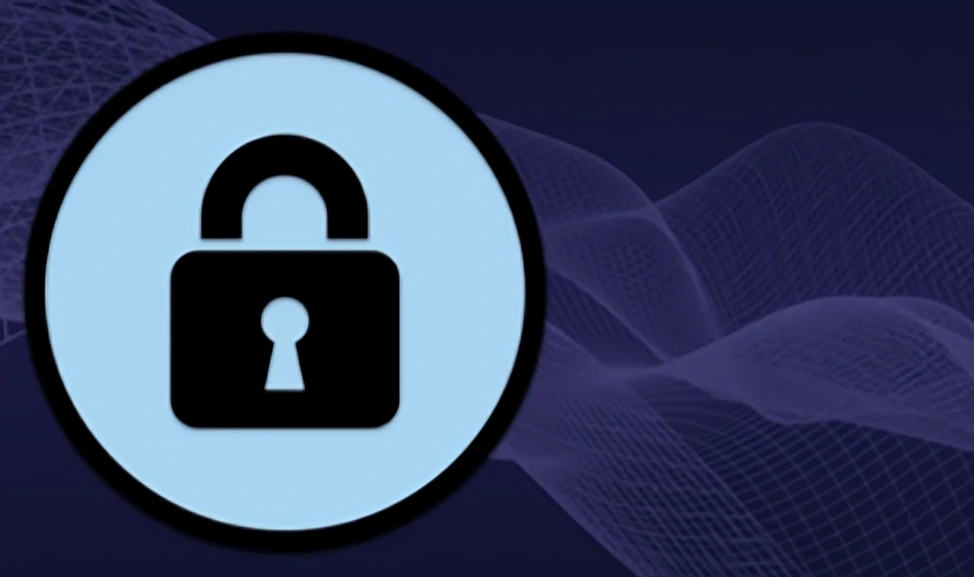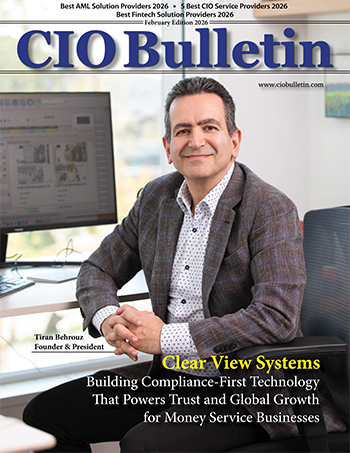Home Technology Cyber security A New Cyber Wake-Up Call: Simp...
Cyber Security

CIO Bulletin
13 November, 2025
Every few months, it appears in the headlines that another cyberattack has happened. Data breaches, ransomware, identity theft, it's not just big companies that are getting hit anymore. Individuals are becoming a more common target, and tactics are becoming sneakier. The truth is, if you're online, you're in the game, whether you like it or not. But the good news is that you do not have to be a tech genius to protect yourself. With a few small habits, anyone can make a big difference.
When shopping online, always look for the padlock symbol and "https" in the browser bar. These are indications that your payment information is being transmitted securely. It's also a good idea to avoid using recognized retailers with a poor track record when it comes to protecting customer data.
The same is true with digital gaming platforms. Trusted names such as Steam and G2A have established a reputation for secure transactions, giving users peace of mind when buying games or in-game content.
When it comes to online casino gaming, the stakes may be even higher because of the real money involved. That's why it's important to use platforms that have been tested and reviewed in terms of their payment processes, security protocols, and withdrawal speeds. Not all websites are equal in quality, and depending on those that have been proven reliable is one way to keep your financial information safe from possible abuse.
To provide an extra layer of security, you may want to consider using virtual cards or digital wallets that create unique transaction details. These tools restrict the information that your main account can share and are particularly useful for one-time payments or sites you are trying out for the first time.
You've heard it before, but it's worth repeating: Strong passwords are your first line of defense.
That means:
No "123456" or "password."
No pet names or birthdays.
Use at least 12 characters, including a mixture of upper and lower case letters, numbers, and symbols.
Even better? Start a password manager. These kinds of tools generate and store complex passwords for you so that you don't have to remember them all. They're easy to establish and curb the urge to use the same password on multiple sites (a big no-no).
Another key step: Enabling two-factor authentication (2FA) where available. This provides an additional layer of protection by requiring a second form of identification, such as a text code or notification on an app.
Phishing is still one of the most effective cyber tricks, and that's because it works on human psychology, not technology. A fake email from your bank. A message that appears to be from a package delivery. A message from "Netflix" requesting you update your account.
If you receive a message that encourages you to act quickly or click on a link, wait. Ask yourself:
Was I expecting this?
Is there anything off in the spelling or sender address?
How could I check this some other way?
Never click on links or download attachments from unknown senders. When in doubt, visit the company's website directly or contact customer support through their official channels.
It's easy to jump on public Wi-Fi in a cafe, airport, or hotel. But these networks are prime hunting grounds for cybercriminals. They can intercept the data you send, including your login information and payment details.
If you have no choice but to use public Wi-Fi, don't log in to sensitive websites such as banking or email. Better still, use a virtual private network, or VPN. VPNs encrypt your internet traffic, which makes it harder for anyone to snoop.
At home, change the default password of your router, update the firmware regularly, and conceal your SSID if you wish to add an extra layer of obscurity.
We are sharing a lot on social media, sometimes more than we realize. Birthdays, location check-ins, new jobs, even vacation dates. All of this can be used by someone who is trying to guess your password or security questions.
It's worth tightening your privacy settings. Make sure your posts aren't seen by strangers and think twice about sharing personal details. Also, be careful about accepting friend requests. Fake profiles are a popular method of information gathering.
Cybercriminals have even been known to use data collected from social media to create incredibly convincing phishing scams. Just because a message contains your name or employer doesn't mean it's safe.
That tempting-looking freeware app or browser extension? It could be a Trojan horse.
Only download applications or files from trusted sources. That means staying with official app stores and trusted websites. Before you install anything, see the reviews and number of downloads.
And don't forget those software update pop-ups. They often contain security patches that help to fix vulnerabilities hackers are actively trying to exploit. Whether it's your phone, laptop, or even your smart TV, updates are important.
Search for your name on the Internet from time to time. It's not vanity, it's awareness. You may find your email on data breach lists or find out about old accounts that you have forgotten to close.
Use services such as "Have I Been Pwned?" to find out whether your data has been hacked. If you discover your email on one of these lists, immediately change your password for any affected accounts.
Also, be wary of online quizzes and fun apps. Some of them collect data for purposes far beyond amusement.
From smart speakers to baby monitors, our homes are now full of internet-connected gadgets. But many of these devices have minimal security.
Start by modifying the default login information on all devices. If your smart fridge or camera comes with the option of password protection, use it. Check for firmware updates on a regular basis and disable any features you don't need, especially remote access.
If possible, place these devices on a separate network from your primary computer or phone. Most current routers support "guest" networks, which are ideal for this purpose.
And if your device is infected by ransomware, or should it fail completely, your backup could be the only way to recover important files.
Use both backups from the cloud and physical external drives. Set them to back up automatically and ensure that the copies are recent. It's one of the easiest and least understood ways to secure your digital life.
Every app and platform collects data, but you have more control than you think. Take the time to go through the privacy settings of your most-used platforms.
Limit data collection when it is possible. Turn off the microphone and location access unless necessary. Disable ad tracking. Many apps gather more than is necessary because few people take the time to change the defaults.
Cybersecurity doesn't require paranoia and a computer science degree. It only takes a little bit of awareness and some good habits.
Start by checking your passwords and privacy settings today. Then, build on those basics, be on the lookout when clicking links, update your software regularly, and be conscious of what you're sharing on the Internet.
It's a fast-paced digital world, and there will always be new threats. But the good news? Most cyberattacks don't need fancy solutions; they can be prevented by simple and smart actions that are within reach of every user.

Insurance and capital markets







